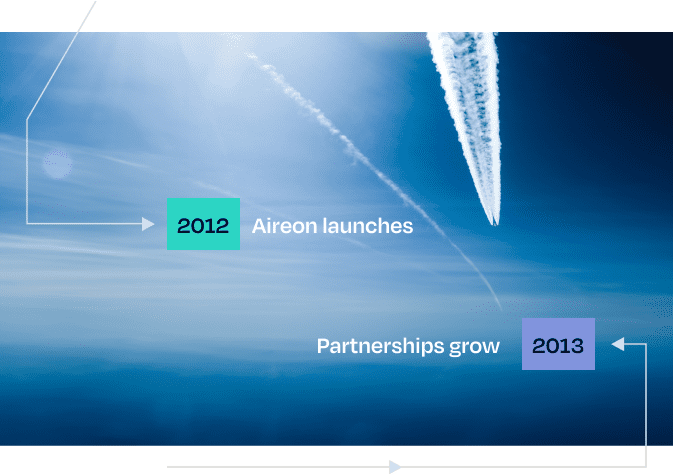About
Aireon deployed the first global air traffic surveillance system using a space-based Automatic Dependent Surveillance Broadcast (ADS-B) that meets the strict, real-time Air Traffic Service (ATS) surveillance requirements. Aireon is advancing aviation again, leveraging that same high-quality data to bring new products to the aviation industry.
The global power of Aireon’s space-based ADS-B
About 50 percent of the world’s airspace is using Aireon’s space-based ADS-B data technology for aircraft surveillance.

Revolutioning air traffic surveillance since 2011
Aireon was created in 2011 to provide real-time global air traffic surveillance anywhere in the world. Aireon’s service uses space-qualified Automatic Dependent Surveillance-Broadcast (ADS-B) receivers built into each of the 66 satellites in Iridium NEXT, Iridium’s second-generation satellite constellation, to deliver this transformational capability.
Our history

Low-latency data, powered by satellites
The backbone of Aireon’s technology resides on Iridium constellation of satellites. Eight Iridium launches on Space-X Falcon 9 rockets successfully occurred between January 2017 and January 2019. Iridium’s next generation satellite constellation is delivering exciting new innovations and opportunities, while ensuring continued high performance and reliability, far into the future. Iridium is hosting Aireon’s specially designed receivers on each Iridium satellite, covering 100 percent of the globe. Iridium’s low-latency, 66 cross-linked Low Earth Orbit (LEO) satellites make it uniquely suited to meet the technical demands of global air traffic surveillance and tracking.
our technologyMeet the Team
Meet the leadership team and board of directors spearheading Aireon innovations.
our teamJoin Our Team
Our employees are our most valuable assets, powering all of Aireon’s technological innovations
View Our Openings



